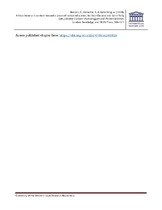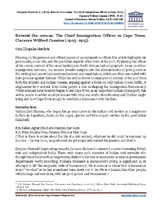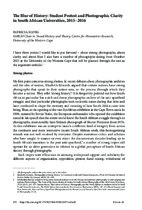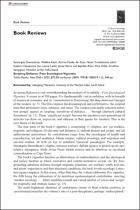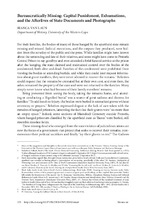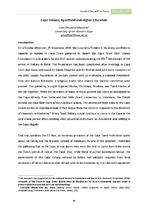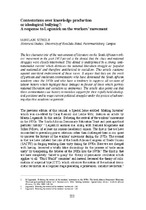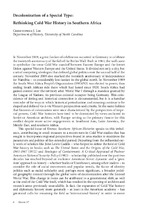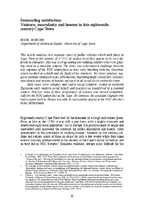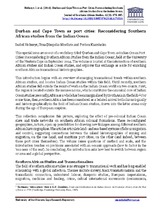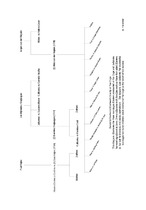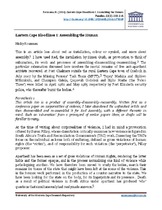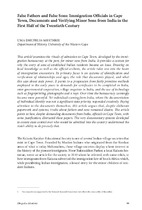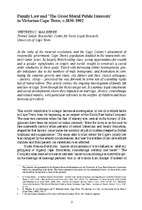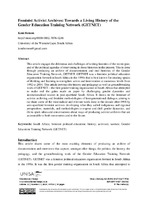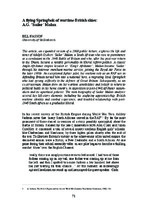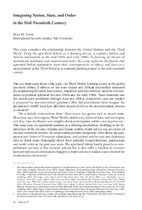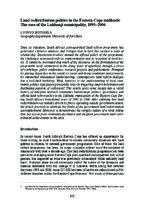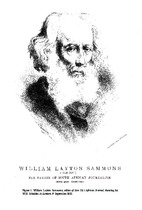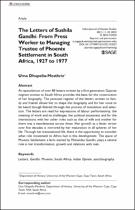Browsing History by Title
Now showing items 1-20 of 45
-
African history in context: Toward a praxis of radical education
(Taylor & Francis Group, 2018)This chapter reflects on the context, process, and challenges of the Know Your Continent (KYC) popular education course which we ran in Cape Town in the second half of 2015. KYC brought together people from local high ... -
Betwixt the oceans: The Chief Immigration Officer in Cape Town, Clarence Wilfred Cousins (1905–1915)
(Taylor & Francis, 2016)Drawing on the personal and official papers of an immigration officer, this article highlights his personality, social life, and the quotidian aspects of his work at the port. By placing the officer at the centre, instead ... -
The blur of history: Student protest and photographic clarity in South African universities, 2015–2016
(University of the Western Cape, 2017)I have three points I would like to put forward – about strong photographs, about clarity and about blur. I also have a number of photographs dating from October 2015 at the University of the Western Cape that will be ... -
Book review: scripting defiance: four sociological vignettes
(SAGE, 2023)Background: Scripting Defiance is vast, notwithstanding the modesty of its subtitle – Four Sociological Vignettes. It comes in at 530 pages. It is fundamentally vast in ambition, with its breadth of empirical examples, and ... -
Bureaucratically missing: Capital punishment, exhumations, and the afterlives of state documents and photographs
(University of the Western Cape, 2018)For their families, the bodies of many of those hanged by the apartheid state remain missing and missed. Judicial executions, and the corpses they produced, were hidden from the scrutiny of the public and the press. While ... -
Cape Indians, Apartheid and Higher Education
(University of the Western Cape, 2013)On a Sunday afternoon, 15 November 2009, the Luxurama Theatre in Wynberg was filled to capacity as Indians in Cape Town gathered to launch the Cape Town 1860 Legacy Foundation in preparation for the 2010 events commemorating ... -
Contestations over knowledge production or ideological bullying? A response to Legassick on the workers' movement
(Published by History Dept, University of the Western Cape, 2009)The key characteristic of the vast amount of literature on the South African workers ʼ movement in the post-1973 period is the denial that the class and national struggles were closely intertwined. This denial is underpinned ... -
Decolonization of a special type: rethinking Cold War history in Southern Africa
(History Department, University of the Western Cape, 2011)Introduction: This special issue of Kronos: Southern African Histories speaks to this imbalance, contributing in small measure to a recent turn in Cold War studies that has sought to incorporate regional perspectives ... -
Demanding satisfaction: Violence, masculinity and honour in late eighteenth century Cape Town
(Published by History Department, University of the Western Cape, 2009)This article analyses two separate cases of public violence which took place in Cape Town in the summer of 1772/3. At surface level they appear to be very different in character. One was a scrap among low-ranking soldiers ... -
Durban and Cape Town as port cities: Reconsidering Southern African studies from the Indian Ocean
(Taylor & Francis, 2016)This special issue arose out of a workshop titled ‘Durban and Cape Town as Indian Ocean Port Cities: Reconsidering Southern African Studies from the Indian Ocean’, held at the University of the Western Cape in September ... -
An early modern entrepreneur: Hendrik Oostwald Eksteen and the creation of wealth in Cape Town, 1702–1741
(Published by History Department, University of the Western Cape, 2009)This article uses the career of Hendrik Oostwald Eksteen at the Cape between 1702 and 1741 to illustrate the mechanisms free burghers could use to create wealth in an economically restrictive environment. By making use ... -
Eastern Cape Bloodlines I: Assembling the Human
(Taylor & Francis, 2016)This is an article less about red as installation, colour or symbol, and more about assembly.1 I have used Red, the installation by Simon Gush, as provocation to think of exhumation, its work and processes of ... -
False fathers and false sons: Immigration officials in Cape Town, documents and verifying minor sons from India in the first half of the twentieth century
(University of the Western Cape, 2014)This article examines the rituals of admission to Cape Town, developed by the immigration bureaucracy at the port, for minor sons from India. It provides a context for why the entry of sons of established Indian residents ... -
Family law and "the great moral public interests" in Victorian Cape Town
(Published by History Department, University of the Western Cape, 2010)In the wake of the mineral revolution, and the Cape Colony’s attainment of responsible government, Cape Town’s population doubled in the nineteenth century’s latter years. Its largely British ruling class, seeing ... -
Feminist activist archives: Towards a living history of the Gender Education Training Network (GETNET)
(UNISA Press, 2018)This article engages the dilemmas and challenges of writing histories of the recent past, and of the political agendas of intervening in those histories in the present. This is done through producing an archive of documentation ... -
A flying Springbok of wartime British skies: A.G. "Sailor" Malan
(Published by History Department, University of the Western Cape, 2009)This article, an expanded version of a 2008 public lecture, explores the life and times of Adolph Gysbert ʻSailorʼ Malan, a South African who rose to prominence as a combatant in the 1940 Battle of Britain and who, after ... -
Imagining nation, state, and order in the mid-twentieth century
(Published by History Department, University of the Western Cape, 2011)This essay considers the relationship between the United Nations and the Third World. Using the apartheid debate as a framing device, it explores Indian and African nationalism in the mid-1940s and early 1960s. In focusing ... -
Land distribution politics in the Eastern Cape midlands: The case of the Lukhanji municipality, 1995-2006
(Published by History Dept, University of the Western Cape, 2009)Since its initiation, South Africaʼs post-apartheid land reform programme has generated extensive analysis and critique that in turn has yielded a body of scholarship. Discussion revolves around the official policy of ... -
Laughing with Sam Sly: The cultural politics of satire and colonial British identity in the Cape Colony, c. 1840-1850
(Published by History Department, University of the Western Cape, 2010)This article examines Sam Sly’s African Journal (1843–51), a literary and satirical newspaper published by William Layton Sammons in Cape Town. It contends that the newspaper utilised satire to forge British cultural ... -
The letters of Sushila Gandhi: From press worker to managing trustee of Phoenix settlement in South Africa, 1927 to 1977
(SAGE Publications, 2023)On 18 March 1949, Sita Gandhi, the eldest daughter of Manilal and Sushila Gandhi, responded to a request for information from Louis Fischer who was writing his biography of Mohandas Gandhi. The 21 years old had taken over ...

